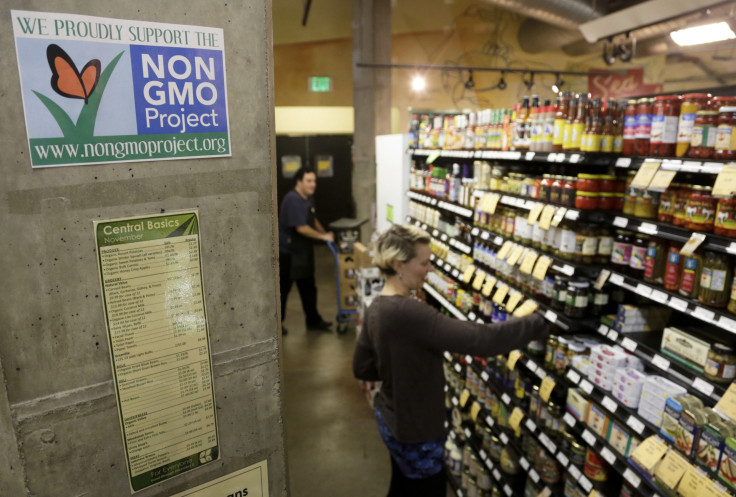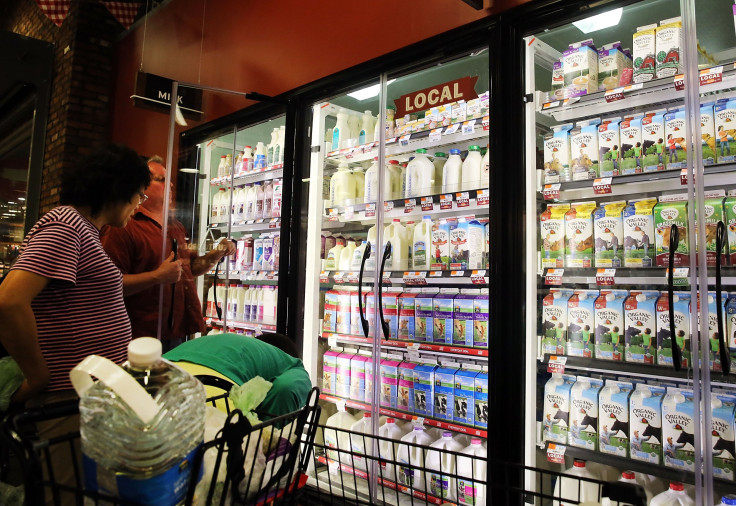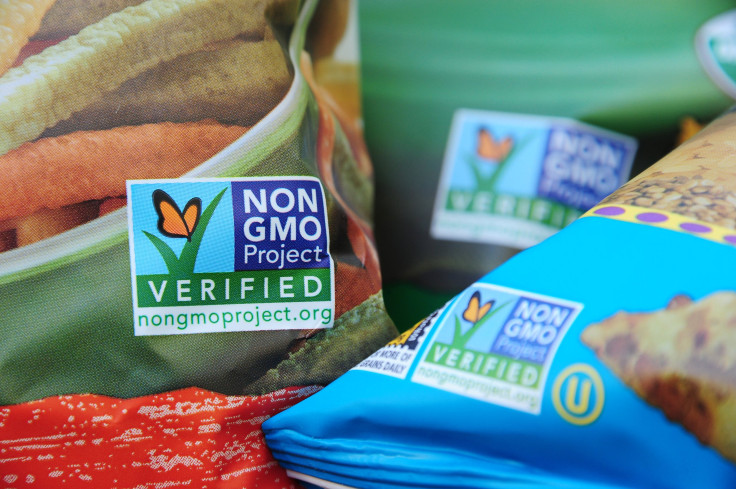GMO Labeling: Should Food Packaging Identify Genetically Modified Organisms?

For many grocery shoppers, supermarket aisles have become quite a confusing place. Organic, natural, non-GMO, gluten free — the plethora of terms slapped on food packaging has left more than a few consumers’ heads spinning. Now, what has been merely confusing has become contentious.
The U.S. Senate Agriculture Committee is slated to consider a bill next week that would block states from enacting mandatory labeling laws for foods containing genetically modified organisms (GMOs). Instead, the proposed legislation would authorize the Agriculture Department to make such labeling voluntary. While the Food and Drug Administration (FDA) says GMOs are safe, the public perception of foods with them is overwhelmingly negative. If a mandatory GMO labeling law does pass, however, consumer buying patterns could be altered considerably, marketing and food industry experts said.
“I believe people should know what they are buying,” said John Stanton, a professor of food marketing at St. Joseph’s University in Philadelphia. He is also editor of the Journal of Food Products Marketing and has consulted for national food companies. “But the problem for me is that if I pick something that is kind of irrelevant to me like GMOs, which is also irrelevant to the World Health Organization and FDA, and you allow people to put non-GMOs on the label, you might be misleading them that the other products that contain GMOs are bad.”
The bill is on the fast track as Vermont’s mandatory labeling law goes into effect July 1. The food industry generally backs the proposal, introduced by Sen. Pat Roberts, R-Kan., chairman of the House Agriculture Committee, and has argued GMOs are safe and a patchwork of state laws regulating them is impractical. However, advocates of mandatory labeling, including the Environmental Working Group, Friends of the Earth and Democratic candidate Bernie Sanders, sharply oppose such measures, arguing that consumers have the right to know what is in their food and not enough research has been done on the long-term effects of GMO consumption.

Opponents of mandatory labeling have argued a label would read as an “unnecessary” warning and hurt products that contain GMOs. Conversely, advocates say companies will actually benefit from the increased transparency. The key, experts say, is to increase education and understanding of what GMOs are before slapping a label on a product.
“If I put something on my label, like 'No-GMO,' there is a natural presumption that if they are telling you it doesn’t have it, it must be bad. Otherwise why would they put it on the label?” Stanton asked.
A report from the Food Marketing Institute in Arlington, Virginia, on grocery shopper trends in 2015 revealed GMOs sound bad to almost half of American food shoppers, with 45 percent saying they “would” actively avoid them. The number of shoppers who say they actually seek out non-GMO food products currently is only 26 percent, yet that number has still grown relative to other product claims consumers look for on a package, the report said, and experts predicted if mandatory labeling is enacted, that number would climb much higher.
Despite the FDA declaring GMOs safe and a Pew Research study finding 88 percent of scientists connected with the American Association for the Advancement of Science viewed them as a nonthreat to eat, only 37 percent of U.S. adults felt the same. That’s a whopping 51-point gap that will likely increase with mandatory labeling.

“I think that it’s going to create a sense of ‘these are bad for you,’ when in fact there is no scientific evidence that GMOs are bad for you,” Stanton said. “I am vexed.”
He predicted if mandatory labeling is enacted, there would be two types of consumers: those who actively seek out non-GMO foods and buy only those products, and those who do not care, much like the organic food consumer base.
Phil Lempert, an expert analyst on consumer behavior and marketing trends, also noted there are generally two types of consumers when it comes to GMOs: consumers who actively seek out non-GMO products and remain loyal to those products, and those who don’t care either way and will base their purchasing decisions factors such as taste and price.
The organic consumer base is much broader, Lempert said, while the non-GMO consumer base consists largely of new mothers and millennials. If mandatory labeling were enacted, that consumer base likely would grow as more shoppers begin searching out non-GMO products. As a result, education of what GMOs actually are is key before slapping a label on a product, Lempert said.

Smoothie and juice bars typically target the health-conscious demographic and the types of consumers who typically go out of their way to buy products that are organic and don’t contain GMOs, Lempert pointed out. The Papaya, a popular fruit used in smoothies at many juice bars, actually is a genetically modified crop, Lempert said, highlighting just how much misinformation about GMOs is out there.
“It’s not about science; it’s about emotion,” said Lempert, who is also known as the “Supermarket Guru.”
“When people see GMOs, even if they don’t understand what it means, they are afraid of it,” he said. “We’ve got decades of misinformation. What I would hope is that there will be an education program attached to a mandatory labeling law, so we have people understanding what it means.”
Whether a mandatory GMO-labeling law will negatively impact companies that sell products containing GMOs depends on a variety of factors, Lempert said. Campbell’s Soup recently announced it will voluntarily display GMO information on its labels, Lempert acknowledged. But despite the fact that many of its foods contain GMOs, he doesn’t think it will sway the general population to stop purchasing the brand’s products.

Charlie Arnot, the CEO of the Center for Food Integrity, a nonprofit organization in Gladstone, Missouri, that surveys U.S. consumers to measure and track attitudes on food system issues, said the effects of mandatory GMO labeling on a company also depends on the execution of the labeling.
“If it’s underneath the nutrition list, it will probably have minimal impact, but if it’s on the front with a skull and cross bones saying ‘no-GMOs’ it will have a significantly different outcome,” he said. “A lot of it depends on how consistent the label is, what it says and whether it’s so common that it loses any intimidating or fear factor, like with what happened in Brazil [which has a mandatory GMO-labeling law].”
Advocates for mandatory GMO labeling have argued more and more consumers are demanding to know where their food comes from and are troubled by a lack of disclosure, so increased transparency will likely end up benefiting companies.
A report published last year by the Hartman Group, a company in Bellevue, Washington, that focuses on demand-side trends in the food industry, found 64 percent of consumers said “knowing what ingredients are in a food or beverage” is of top importance to them. Among those consumers, 41 percent said they want to know about GMOs. Arnot acknowledged GMO transparency is just one item on a laundry list of items for which companies should aim, but transparency about GMOs alone will likely not help a company succeed.
“I think it has to be more than about GMOs for it to help a company,” Arnot said. “If you look at Campbell’s transparency, it’s more than just GMOs. There’s a whole list of things consumers are looking for, and the overall commitment to transparency will help those companies.”
© Copyright IBTimes 2024. All rights reserved.






















